Allergy to washing powder in adults
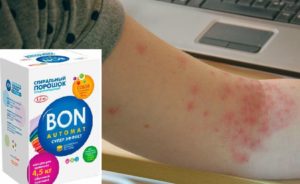 An allergic reaction of the body to an irritant may appear suddenly. Some people suffer from allergies from birth, while others develop them. The most common allergens are foods, pet hair, pollen, medications, and cosmetics. Washing powder is considered one of the strongest irritants. It can cause allergies in people of any age. To minimize the risk of attacks and discomfort, you need to be able to choose the right composition for washing. Let's figure out how to prevent allergies to washing powder, what components should or should not be included in the ideal product.
An allergic reaction of the body to an irritant may appear suddenly. Some people suffer from allergies from birth, while others develop them. The most common allergens are foods, pet hair, pollen, medications, and cosmetics. Washing powder is considered one of the strongest irritants. It can cause allergies in people of any age. To minimize the risk of attacks and discomfort, you need to be able to choose the right composition for washing. Let's figure out how to prevent allergies to washing powder, what components should or should not be included in the ideal product.
The danger lies in the composition
It would seem that what terrible thing could be contained in a laundry mixture? The powder is rinsed out of the fabric and, therefore, cannot harm the body. However, this is not true; some products may contain substances that are unsafe for human health and remain on the fibers of the laundry even after prolonged rinsing.
Household chemicals displayed on store shelves have different manufacturers, prices, and, of course, composition. To choose an anti-allergenic washing powder, you need to study what components the product is made from. The composition of most powders is based on the same substances.
- Surfactants. They come in three varieties: cationic, nonionic and anionic. This component is present in every washing powder.
- Phosphates. Allows you to soften water.Phosphates cannot be called safe; on the contrary, they have a toxic effect on the body and the human environment. In certain states, the use of phosphates in household chemicals is strictly prohibited.
- Bleaches. These components contain chlorine, which is unsafe for living organisms.
- Enzymes. The additive is designed to improve the quality of washing by destroying the most difficult contaminants.
- Flavors.
Finding laundry detergents for allergy sufferers is not easy. The body's reaction can be caused by phosphates, bleaches, and flavorings contained in the composition. Therefore, when choosing washing powder, you need to focus on the line of phosphate-free household chemicals without fragrances.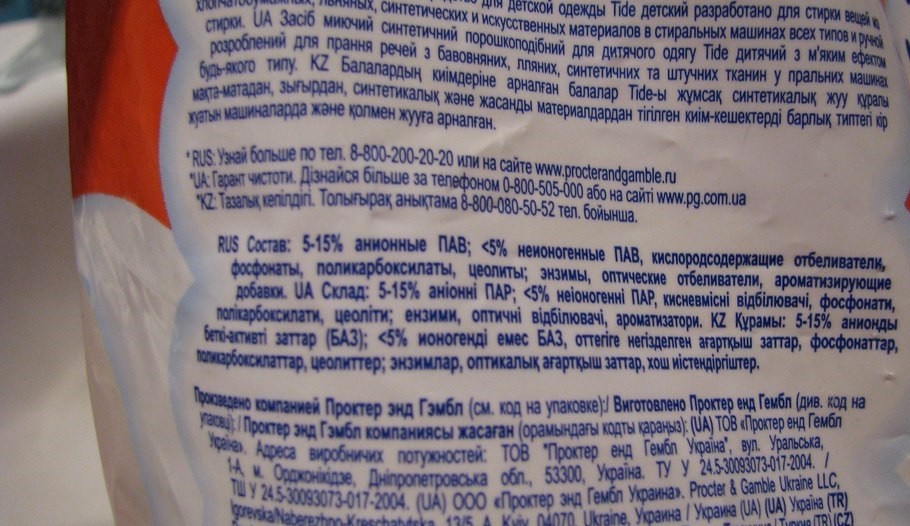
In adults, an allergy to the powder appears due to direct contact of hands with the product, at the moment of pouring it into the powder receptacle of the washing machine, or when wearing things on which unrinsed chemical particles remain. To minimize the risk of a reaction, simple precautions should be taken when handling household chemicals..
Use the powder carefully
It is necessary to use washing compositions carefully; the manufacturer always warns about this. The packages even provide basic handling precautions. Basically, the essence of the recommendations boils down to the following rules:
- strictly follow the required dosage of detergent; do not pour too much powder into the machine. A lot does not mean good; particles of the substance will remain on the fabric fibers, even after intensive rinsing;
- Do not store packaging in places where children can climb, or near food products;
- When washing by hand, be sure to wear rubber gloves;
- it is necessary to pour the powder very carefully so that dust particles do not get on the mucous membrane;
- rinse the laundry several times to minimize the amount of harmful substances remaining in the fabric;
- If possible, do not use cheap products; it is better to purchase higher quality powders.
If you find yourself allergic to a certain brand of washing powder, get rid of it immediately and purchase products from another manufacturer. Preferably, it contains hypoallergenic components.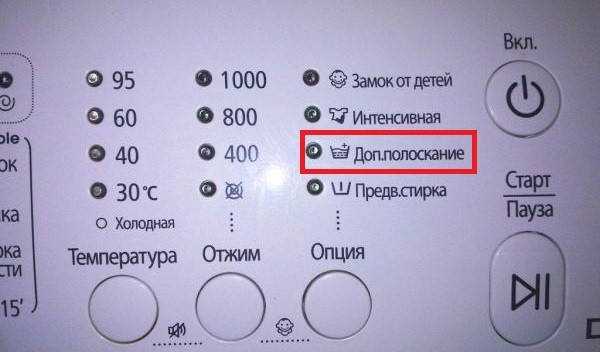
How does the reaction manifest itself?
Sometimes, when obvious signs of allergies appear in adults, they are simply not noticed, are attributed to a viral disease, or are in no way related to household chemicals. Therefore, it is important to know how the body’s reaction to an allergen manifests itself? An allergy to washing powder is characterized by one or more pronounced manifestations:
- the appearance of rashes, inflammations, and peeling of the skin on the body. A person may feel a burning sensation and unpleasant itching. Swelling may occur;
- redness, watery eyes – the occurrence of allergic conjunctivitis. The eyes may become very itchy;
- allergic rhinitis – nasal congestion or clear runny nose, sneezing, paroxysmal cough;
- in more rare cases - attacks of suffocation, the appearance of shortness of breath.
If you notice any of the listed symptoms, you should consult a doctor. Competent appointments from a specialist will help relieve the signs of allergies.
How to find safe powder?
One of the most aggressive components of the powder are phosphates. Allergy sufferers should not have them in laundry detergents. Phosphate-free household chemicals are more expensive, but you shouldn’t skimp on your health.Good alternatives to phosphates include hypoallergenic phosphonates. If you use chemicals with added phosphates, make sure that they contain up to 5%.
Also, anti-allergenic washing powders should not be “stuffed” with fragrances. Flavorings are a strong irritant, often provoking an undesirable reaction in the body.
It is recommended to purchase hypoallergenic laundry detergents at special retail outlets.
How are allergies usually treated?
People prone to allergies understand what they look like. The reaction may not be severe, but with certain symptoms, for example, severe itching, swelling or suffocation, it is necessary to stop the allergic attack before visiting the doctor. If you do not take the medicine, the swollen tissues of the respiratory organs can block the supply of oxygen to the body. Your home medicine cabinet should always have an antihistamine available that can cope with an allergic reaction. We are talking about the following medications:
- Suprastin;
- Chloropyramine;
- Diazolin;
- Subrestin;
- Loratadine;
- Tsetrin, etc.
Medicines approved for use by children: Zyrtec, Fenistil, Zodak drops. After allergy symptoms have eased, you should visit a doctor. Only an experienced specialist can prescribe further treatment. For skin dermatitis, the doctor, together with antihistamines, will prescribe you a certain gel or cream for treating the dermis (“D-panthenol”, “Fenistil”, etc.). In addition, sedatives can be prescribed, for example, Novopassit, Glycine, Persen, etc.
Along with drug treatment, time-tested folk methods are also used. Lie for 10-15 minutes in a bath with soda, its effect will relieve itching and soothe the skin.The water should be warm, not hot.
Dried burdock and dandelion rhizomes will help cope with body rashes and eliminate itching. 0.6 liters of water are poured into the container and 2 tablespoons of the dry mixture are added. The ingredients are infused for about 12 hours. Afterwards, boil the water and leave for another half hour. The resulting decoction is taken orally, 100 ml, 4-5 times a day. Don't think that the allergy will go away on its own. It is imperative to take measures to fully restore the body.
How to prevent it?
It is better to prevent any trouble than to deal with the consequences later. The same applies to allergies to washing powder. By following simple preventive measures, you will reduce the risk of an unwanted reaction from the body.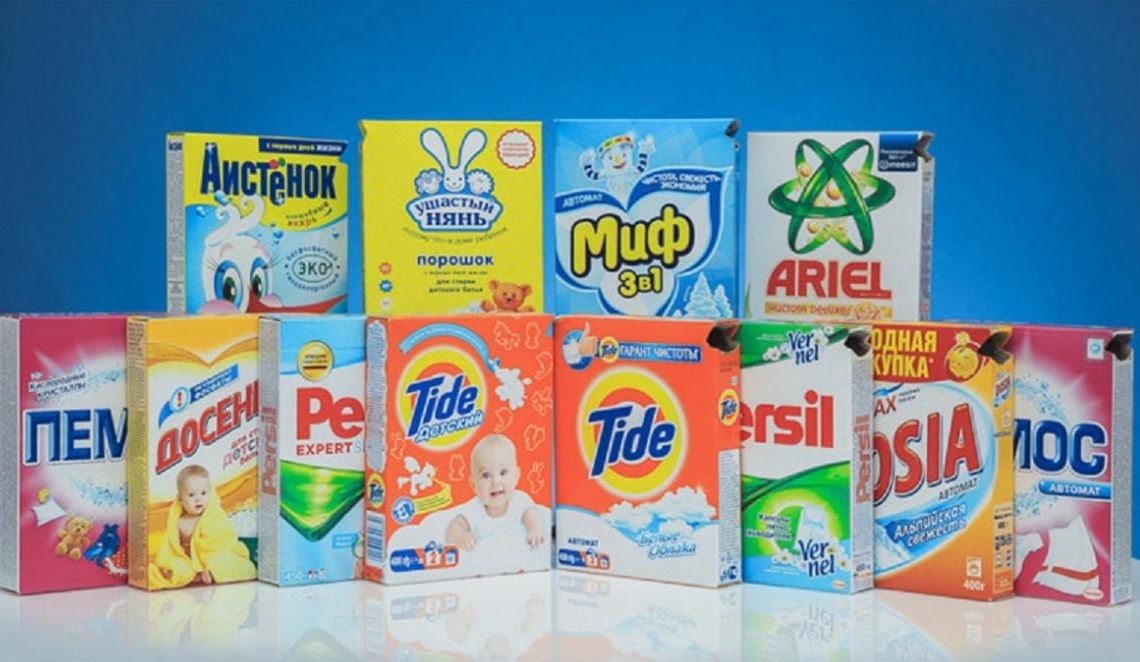
- Use household chemicals that do not contain phosphates.
- Observe the storage conditions of the products, close the packaging tightly.
- Add as much powder as required depending on the type and volume of washing. Do not exceed the recommended dose.
- If you are prone to allergies, it is better to put the product into the machine while wearing gloves.
- Rinse the laundry several times, this will remove particles of the product.
- When washing by hand, do not forget to wear rubber gloves.
Each body is unique, and an allergic reaction can be triggered by absolutely any component of the product. In addition, some manufacturers do not comply with regulatory standards when releasing products, supplying the market with low-quality household chemicals, to which even a completely healthy person becomes allergic. Therefore, when purchasing a powder, carefully “study” the composition of the product and choose products only from trusted brands.
Interesting:
Reader comments
- Share your opinion - leave a comment

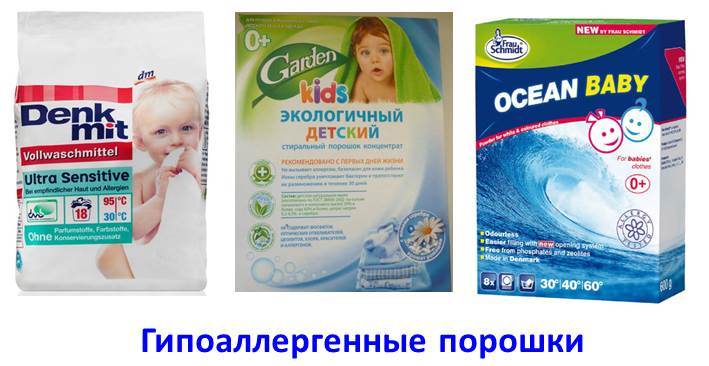
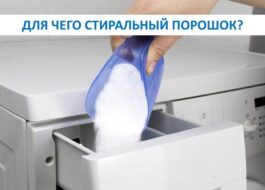

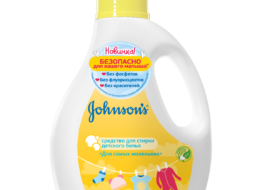
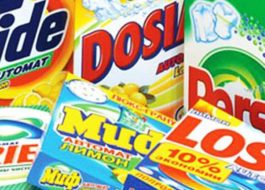



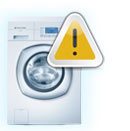
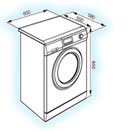


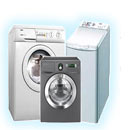
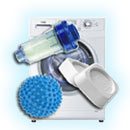

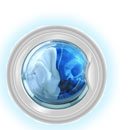

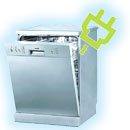


Add a comment